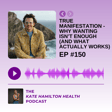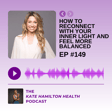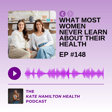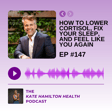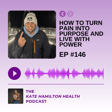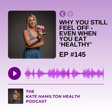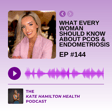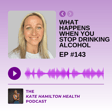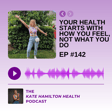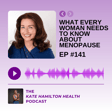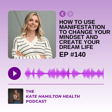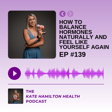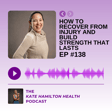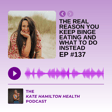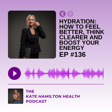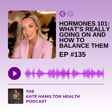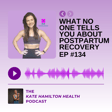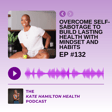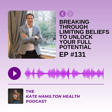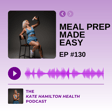
#133: How to stay full and support healthy digestion
In this episode of the Kate Hamilton Health Podcast, I’m breaking down one of the most overlooked (but really important) combos for better digestion and lasting fullness - protein, fiber, and water. We always hear about the importance of protein, especially for muscle and metabolism, but without enough fiber and hydration, your digestion can easily get off track.
I’m sharing how to hit your protein goals without overdoing it, where to find the best sources of fibre, and why drinking enough water is the missing link for smoother digestion and balanced blood sugar. Plus, I’ll walk you through simple ways to tweak your diet without discomfort - no crash changes or extreme plans here. Whether you're trying to manage your weight, improve gut health, or just feel more energised, this episode will give you the tools to do it.
EPISODE HIGHLIGHTS:
[0:00] - Why good digestion starts with the right balance
[1:20] - How protein supports muscle and metabolism
[4:52] - Why fibre is the perfect partner for protein
[12:03] - Water’s underrated role in digestion and satiety
[14:15] - My final thoughts on creating a digestion-friendly routine
Links & Resources:
If you enjoyed this episode, please subscribe, leave a review, and share it with friends who might benefit. For more health and fitness tips, follow me on Instagram and TikTok @katehamiltonhealth.
Music b LiQWYD Free download: hypeddit.com/link/xxtopb [http://hypeddit.com/link/xxtopb] Promoted by FreeMusicPromo [https://www.youtube.com/channel/UCbycji-eySnM3WD8mbxPUSQ] / @freemusicpromo
